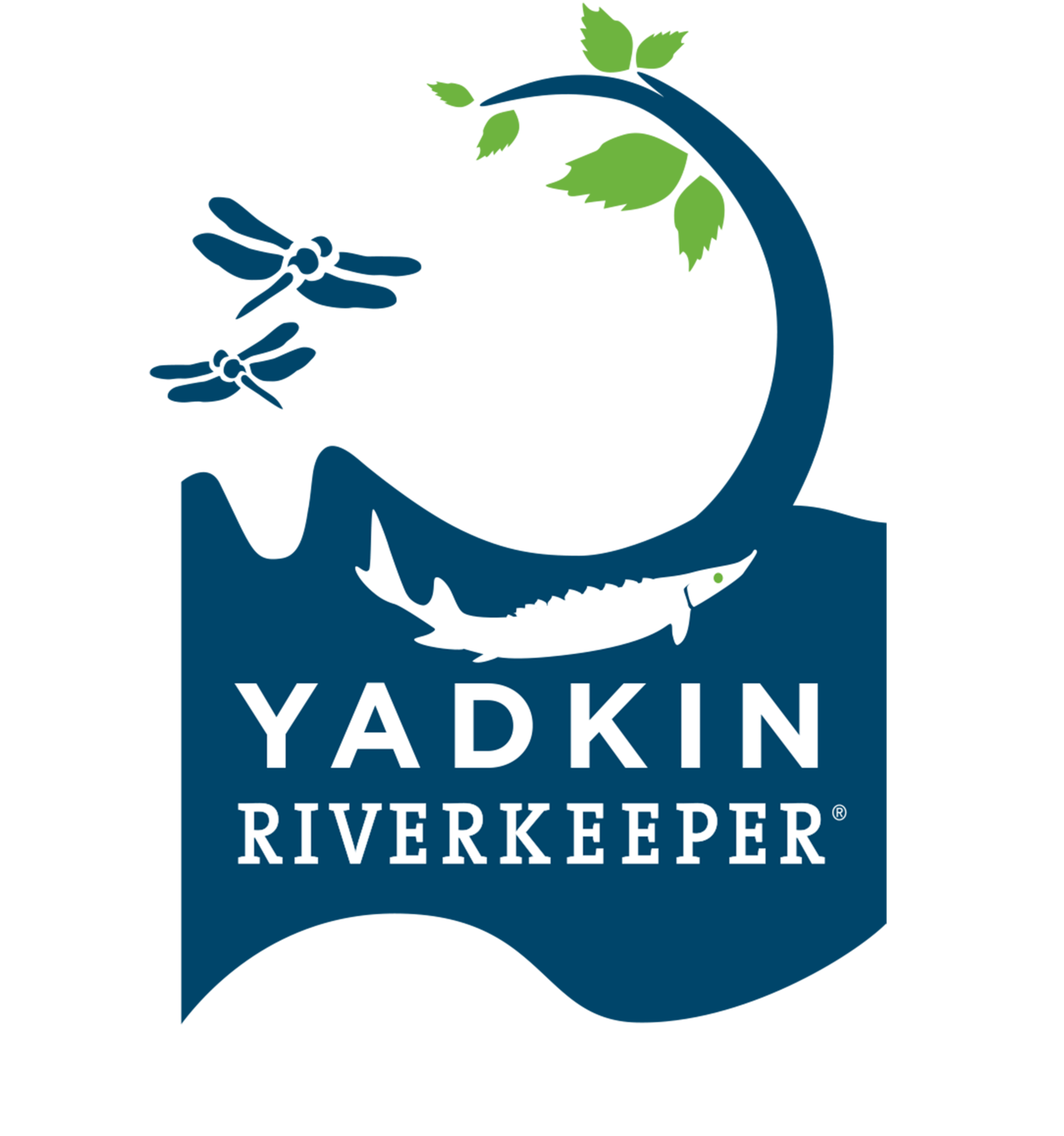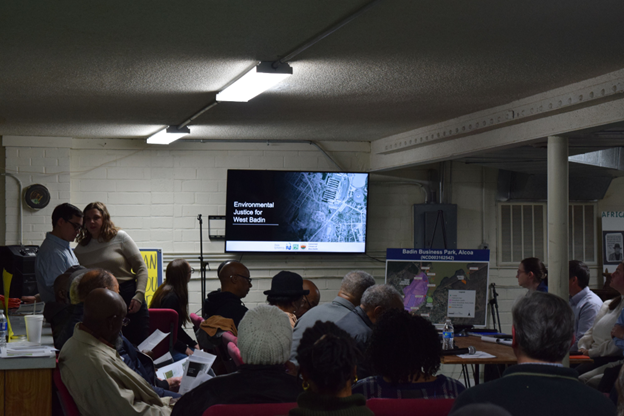-Nicole Eastman, Riverkeeper Assistant/Watershed Protection Specialist
The Concerned Citizens of West Badin Presented on Environmental Justice for their Community
Staff from Yadkin Riverkeeper attended a meeting held on January 23rd to support the Concerned Citizens of West Badin as they shared with the NC Department of Environmental Quality (DEQ) the years of injustice they have experienced due to Alcoa’s toxic operations. Alcoa is an industrial producer of aluminum that operated an aluminum smelting plant in Badin, NC until 2007. The operations resulted in the dumping of hazardous waste in Badin Lake and the placement of an unlined landfill in the town. The Concerned Citizens of West Badin (CCWB) explained the environmental injustices their community has faced while working in the dangerous potrooms and being exposed to the hazardous spent potliner and contaminants they dumped in the landfill.
On Thursday, 17 staff members from DEQ traveled from Raleigh to attend the meeting coordinated by NC Environmental Justice Network (NEJN) to provide information on the actions they have taken to hold Alcoa responsible and to listen to the concerns of the CCWB. This is a major step that will hopefully lead to the state considering the public’s opinions in future regulatory action. However, the decades of neglect by the state to address this problem has led to distrust in the community.
The Division of Waste Management (DWM) shared a presentation outlining Alcoa’s required clean-up activities. These remediation actions included placing sediment caps on the banks of Badin Lake where sediments were reported to have unsafe levels of PCBs, polyaromatic hydrocarbons (PAHs), fluoride, aluminum, and cyanide, installing caps on pipes releasing gas from the toxic landfill, placing an earthen cap on the Alcoa/Badin landfill, and removing contaminated soil at several locations. DWM’s samples indicated elevated levels of cyanide and fluoride at the landfill and part of the surrounding area. They also reported elevated levels of TCE, a volatile organic compound in a portion of the former plant area. DWM stated they will require Alcoa to address these concentrations that are above the regulatory limits in their remediation plan.
Alcoa is working on the final stages of the required Correctives Measures Study which will lead to proposed remedies for the hazardous waste and elevated levels of contaminants. DEQ has asked Alcoa to begin sampling for PFAS and 1,4-dioxane at the landfill in addition to resampling groundwater and landfill gas. The CCWB expressed their concern that the original samples collected by Alcoa are not credible and requested DEQ investigate other locations they had identified as potential polluted sites during their community mapping meeting last September.
The Division of Water Resources (DWR) provided updates on the draft National Pollutant Discharge Elimination System (NPDES) permit that will be released in February. NPDES permits are required by the state and federal government under the Clean Water Act for all wastewater discharges entering surface waters. The DWR made some changes to the permit since the last cycle including adding a fluoride treatment system to one stormwater outfall, adding lake signage, and requiring increased water sampling near stormwater outfalls from semi-annual to quarterly.
Unfortunately, the DWR did not include any of the recommendations that Yadkin Riverkeeper and the Duke Environmental Law Clinic (ELPC) had recommended to protect the water quality and health of community members. These recommendations include:
Requiring more frequent testing for cyanide and fluoride at Outfalls 5, 12, and 13.
Requiring the use of certified laboratories with detection limits that are low enough to detect violations for cyanide.
Establishing effluent limits for aluminum and require that Alcoa monitor the outfalls for more contaminants including PCBs, PAHs, and metals.
Preventing Alcoa from diverting contaminated stormwater discharges from Outfall 5 into Little Mountain Creek and/or Badin Lake.
Preventing Alcoa from using mixing zones. Mixing zones are areas where contamination is diluted to help meet water quality standards.
Eliminating the outfalls that discharge into the public access and swimming areas of Badin Lake.
YRK and the ELPC will continue advocating with the CCWB for the cleanup of these hazardous sites and for the state to hold Alcoa accountable for the decades of negative health impacts that have disproportionately impacted the black community of West Badin. YRK hopes the DEQ will consider the recommendations prior to the release of the permit and YRK will provide further comments during the public comment period in March.

